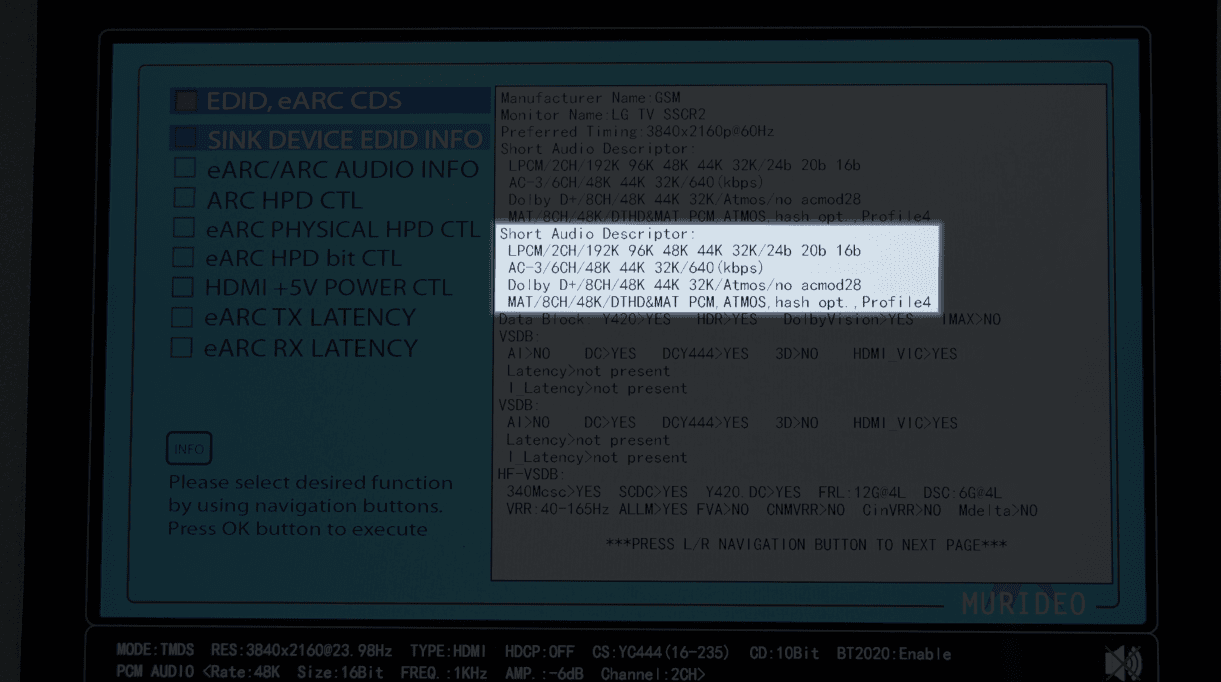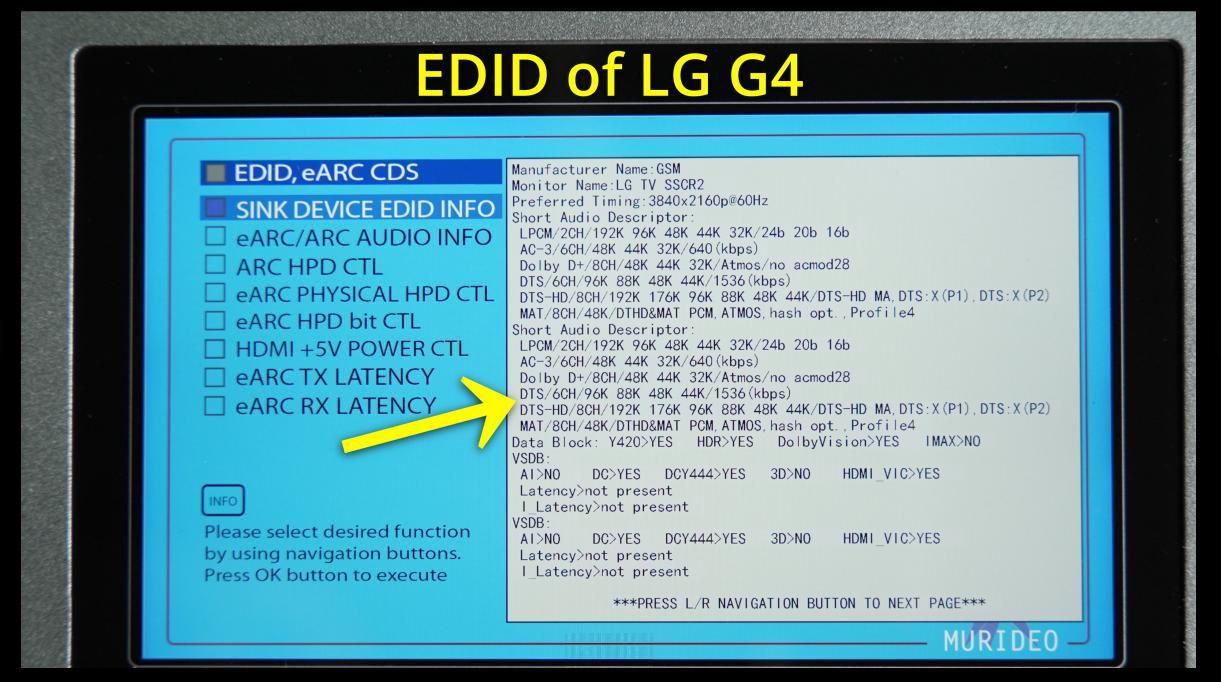
Beware that if you’re in the market to buy one of LG Electronic's new 2025 OLED TVs, you’ll likely have to tolerate not having DTS surround sound, for it appears the company has once again decided to drop support for the format.
HDTVTest’s chief reviewer Vincent Teoh made the discovery after being given early access to LG’s flagship 2025 OLED TV, the LG G5, which he’s currently in the process of reviewing.
While fiddling around with the G5’s Extended Display Identification Data or EDID readout, which describes the device’s video source capabilities, Teoh noticed that there’s no mention of DTS codec support in the audio section:

That’s in stark contrast to last year’s flagship LG OLED model, the G4 TV, where the EDID clearly shows that DTS is supported:

In case you’re wondering, DTS is a codec that’s required to enable the playback of DTS:X encoded audio, which is an multi-dimensional sound format that intends to immerse the viewer in a more realistic soundscape. It’s similar to Dolby Atmos, with the main difference being that it’s more flexible, supporting any kind of surround sound speaker setup, rather than just 5.1-channel and 7.1-channel configurations.
DTS, the company that created the DTS:X format, says it’s uniquely able to support any speaker configuration within a “hemispherical layout”, and gives movie creators greater control over the placement, movement and volume of sound objects. It also allows users to adjust individual audio elements, such as only the voices, making dialogue easier to hear.
Besides the standard DTS:X format, the company also offers DTS:X Pro, which increases the number of playback channels to a massive 30.2, and DTS Virtual X:, which adds height virtualization to generate three-dimensional sound without any additional speakers.
DTS has emerged as one of the most popular surround sound formats, and is widely supported by AV manufacturers like Anthem, Arcam, Denon, Krell, Marantz, McIntosh, Onkyo, Pioneer, Sony, Trinnov and Yamaha. So the fact that it appears to be dropped from LG’s newest OLED TVs is likely to cause a real stink for many users.
There is a precedent for this, by the way. LG did exactly the same thing back in early 2020, when it secretly withdrew support for DTS sound on the LG CX and GX OLED TVs that launched that year. DTS sound was supported on that TV’s predecessor, the 2019 C9 OLED TV, and there was a fair bit of uproar among LG TV owners at the time.
The 2021 LG C1 and G1, and the 2022 LG C2 and G2 OLED TVs also lacked DTS support, but the format was finally restored in 2023 with the launch of that year’s C3 and G3 models. Last year’s C4 and G4 also supported the format, so it's a bit surprising to see that it has disappeared once again.
Without any official confirmation, we can’t say for sure why LG has done it again, but internal data shows that the format was not widely used by LG TV owners. There may also be issues with DTS’s licensing agreements and costs that factor into LG’s decision. As such, it's likely that DTS will be unsupported on all of LG's 2025 TV models, including its LCD-based QNED models.
When LG first dropped DTS in 2020, quite a few workarounds popped up on internet forums for users. In replies to this five-year old Reddit post, where a user mentions he has a lot of videos of concerts and gigs that only have DTS audio, one response suggests that the Plex app might be a solution, as users can upload their files onto a cloud server that can perform the necessary processing there.
Other solutions include buying an ARC/eARC HDMI audio extractor device, and the more technically advanced might try using RootMyTV to enable root access on their LG G5 or C5, then install the lgstreamer/dts_restore application to restore DTS support manually.
Then again, it might be simpler to forgo buying an LG OLED TV altogether and instead go for a Philips or Sony OLED model. Both Philips’ and Sony’s latest OLED models advertise support for IMAX Enhanced, where DTS decoding is a must-have capability.
That said, there are plenty of reasons to want to buy an LG G5 OLED TV though, as it's the first model to feature the company's new Primary RGB Tandem OLED technology that cranks up the brightness and colour accuracy to unprecedented levels: